CIA Sponsored Terror, Civil Liberties, Criminalizing Dissent, Guantanamo, Habeas Corpus, Human Rights, Military Tribunal, Surveillance, Targeting Muslims, Torture, Truth to Power, War Resister
Podcast: Play in new window | Download
Updates:
- Heidi Boghosian Updates Listeners On The Revictimization Relief Act
——
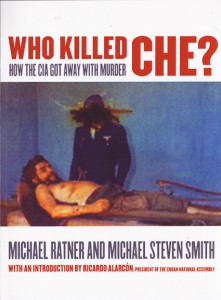

Michael Smith Returns From Argentina Book Tour
Early October marks the 47th anniversary of Ernesto Che Guevarra’s capture and assassination in Bolivia. Co-hosts Michael Ratner and Michael Smith have authored the book Who Killed Che? How The CIA Got Away With Murder. Michael Smith has recently returned from a trip to Buenos Aires to promote the Spanish language version of the book. Michael explains how Che was a threat to the United States by helping Cuba take over their own economy and why its important to set the story straight about Che’s death. Review of Who Killed Che?
—–
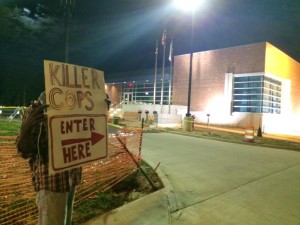
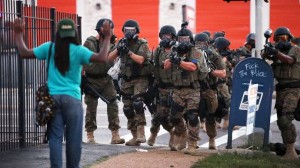
Weekend of Resistance: Ferguson, St. Louis Protests and the National Lawyers Guild
Last weekend, thousands of protesters in Ferguson, Missouri just outside of St. Louis demonstrated during a long planned Weekend of Resistance to the militarized suppression of peaceful demonstrations against the the killings of unarmed black teenagers including Michael Brown two months ago. Demonstrators traveled from cites across the country to participate in protests against police violence – including sit ins and vigil marches. Meanwhile, National Lawyers Guild members have been providing legal support, legal observation and felony representation for people arrested during the weekend. We catch up with St Louis Lawyers Guild member attorney Maggie Ellinger-Locke who has been working long hours representing arrested demonstrators. There are 90 municipalities in St. Louis and Maggie also explains the challenges in helping those arrested get processed through a unique court system.
Attorney Maggie Ellinger-Locke:
- People poured into the streets after the killing of Mike Brown and have pretty much been occupying various locations around the St. Louis area and protesting ever since.
- We at the National Lawyers Guild have mobilized close to 100 legal observers at this point to come down and do the observing and training people who are local.
- We’ve also been connecting people who are facing felony charges with representation as well as backing up the Arch City Defenders who are handling the bulk of the ordinance violations and charges.
- In August there were lots of chemical weapons used, tear gas every night. I was tear gassed multiple times. Other major mobilizations that I’ve been to, they last a couple of days, maybe the duration of a week, but this has been a continued onslaught of less than lethal weapons.
- There are a lot of difference agencies on the ground for law enforcement. There’s the Missouri Highway Patrol, St. Louis County Police Department, The Sheriff’s Department and of course we have 90 different municipalities in St. Louis County, each with its own police force.
- This is what it takes to fight back. People are out there every day on the streets.
- We’ve had NLG members pour in from all over which has really been fun getting to know all these people.
- Monsanto, which is based in Creve Coeur, Missouri, made a donation recently of a million dollars to various community groups doing work on the ground. On the other hand we’ll have a local pizza company board up and then the owner will train a gun on protesters to intimidate them.
- The demands have varied depending on the organizations. Indicting Darren Wilson, the officer who shot Michael Brown is at the top of everyone’s list. In order to achieve that you would have to have demand number 2 met which is that Don McCullough, the St. Louis County prosecuting attorney recuse himself from this case. People think that he’s conflicted in that his father was a white police officer who was shot by an African American man and killed.
- Another big demand is that the many many municipal charges that people are facing be dropped.
- In addition we desperately need reform of our municipal court system. The structure is insane.
- We’re hopeful that if we can demand jury trials for all of those arrested, we may in fact be able to crash the system.
- We have 40 people now who are facing felonies.
- The Organization For Black Struggle and Missourians Organizing for Reform and Empowerment.
Guest – Attorney Maggie Ellinger-Locke, National Lawyers Guild member and activist, and a partner with Ellinger & Assoc., P.C., a Law Firm in O’Fallon, Missouri.
——-
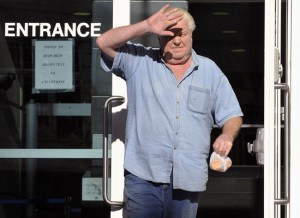
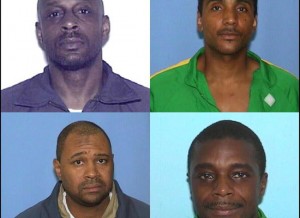
Jon Burge, Torturer of Over 100 Black Men, is Out of Prison After Less Than 4Years
Last week former Chicago police commander Jon Burge who was convicted of lying about torturing more than 100 African-American men at Chicago police stations will be released from the Butner Correctional Institution and reporting to a halfway house in Tampa, Florida. This, as many listeners know is an ongoing story that we’ve been reporting on for many years with Attorney Flint Taylor with the People’s Law Office in Chicago who worked on the case representing some of the torture victims. We talk about why Jon Burge was released and his recent article titled Jon Burge, Torturer of Over 100 Black Men, is Out of Prison After Less Than Four Years. Flint reminds listeners that the total in financial damages to taxpayers from the torture of over 100 black men that Burge oversaw, and the ongoing pension payouts to his collaborating officers, exceeds $120,000,000.
Attorney Flint Taylor:
- Burge is a now notorious police torturer here in Chicago. He shot from detective up to commander of a police station based on torturing African-Americans suspects into giving confessions and sending many of them to death row and to life in prison.
- Ultimately, we were, along with community activists, expose this pattern and practice of 100 cases of police torture.
- This was by electric shock, by bagging people and other kinds of racist brutality.
- We exposed it and nothing happened for many years. Ultimately the Feds, indicted Burge, several years ago, not for torture because the statute of limitations had run on that, but rather for perjury and obstruction of justice.
- He was convicted by a predominantly white jury and ultimately sentenced to 41/2 years in the penitentiary.
- After 31/2 years, he was permitted to go to a halfway house for 6 months.
- What’s happening now? What’s happening with regard to the men who are still in the penitentiary, decades later, and there are almost 20 of them, based on tortured confessions.
- How about the men who testified against Burge, who were his victims?
- Those men, unlike Burge who gets a pension now, and the Illinois Supreme Court has upheld his right, even as a convicted felon to collect that money. These men get nothing, have nothing.
- There are as many as 90 of those men on the streets now, with no health care, with no treatment for psychological damage.
- The majority of city council members support at this point reparations for those men. The reparations for those men would be 20 million dollars.
- The same amount of the money the city spent to defend Burge in the cases of the exonerated men.
- We’re now at a sensitive stage, where the mayor, Emanuel has had to come out. He’s no friend to the anti-torture forces, and he’s been asked repeatedly on this.
- He has played both sides against the middle, its time right now where he’s going to have to fish or cut bait.
- We had the strong support of Karen Louis who was a wonderful challenger and she has now had to withdraw from the (mayoral) race because of “health issues.” She was a strong supporter of the reparations ordinance.
Guest – Attorney G. Flint Taylor, a graduate of Brown University and Northwestern Law School, is a founding partner of the People’s Law Office in Chicago, an office which has been dedicated to litigating civil rights, police violence, government misconduct, and death penalty cases for more than 40 years.
——————————————————————————

Please help support Law and Disorder, the show is now a sponsored project of Fractured Atlas, a non-profit arts service organization. Contributions for the charitable purposes of Law and Disorder must be made payable to Fractured Atlas only and are tax-deductible to the extent permitted by law.
Afghanistan War, CIA Sponsored Terror, Civil Liberties, Criminalizing Dissent, Gaza, Guantanamo, Habeas Corpus, Human Rights, Iraq War, NSA Spying, Political Prisoner, Prison Industry, Surveillance, Targeting Muslims, Torture, Truth to Power, War Resister
Podcast: Play in new window | Download
Updates:
- Mumia Spurs Bill To Block Publicity-Seeking Criminals (Son of Sam Law)
- Guantanamo Bay Prisoner Files Historic Lawsuit Against Obama Over Force-Feeding
——

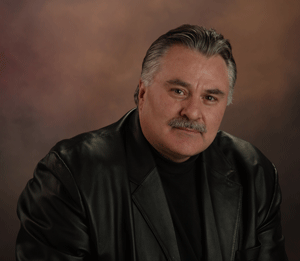
Lawyers You’ll Like – Charlie Abourezk
As part of our Lawyers You’ll Like series, we talk with attorney Charles Abourezk about his work with the Native American community in South Dakota. Charles is a trial attorney, author and film maker. His documentary A Tattoo On My Heart: The Warriors of Wounded Knee 1973 is a gripping documentation of those American Indian men and women involved in the siege. Charles is the Chief Justice of the Rosebud Sioux Tribe Supreme Court, he’s also member of South Dakota Advisory Committee to U.S. Commission on Civil Rights. He’s the son of James George Abourezk, former Democratic United States Representative and United States Senator where he was generally viewed as critical of US foreign policy in Israel and Palestinian.
Attorney Charlie Abourezk:
- The Rosebud Sioux Tribe is the second largest tribe in South Dakota. There are nine total tribal governments in the state. It’s where I grew up.
- I spent most of my adult life on the Pine Ridge Reservation which has been the poorest county in the United States.
- I went to law school, long after I worked for a number of Indian organizations including a Native American NGO that worked at the UN in Category 2 status.
- The Pine Ridge Reservation is the second largest reservation in the United States, located in south western South Dakota. It’s a huge land mass, takes about an hour and a half to drive diagonally across the reservation. There’s very little economy. The geography is very poor, it lends itself to cattle grazing but not much in terms of raising crops.
- Wounded Knee was the site of the 1890 massacre in which almost 300 American Indians from several different tribes were killed by the U.S. Army. They were surrounded and essentially murdered on that spot.
- So, in 1973, there had been a lot of racial discrimination and racially motivated killings of Indian people, the American Indian Movement returned and joined forces with the traditional people who had long been neglected on the reservation.
- As a result they decided to engage in a protest. They chose the site of the massacre at Wounded Knee, to stage that protest.
- They set up sort of a line there, with the government and US Marshalls, along with Dick Wilson’s followers who were armed and were called the goon squad and formed the other side of that line. The siege lasted 71 days.
- It finally dismantled and number of people were prosecuted as a result of that.
- At Wounded Knee, two Indian people killed and one Marshall wounded.
- We set up a recording studio right at the Wounded Knee school, and just took people’s stories. I did the interviews, they were really powerful. There were some stories that didn’t fit with the arc of the film but were incredible. I’m glad I documented it then, because I think of the people in the documentary, 7 or 8 have now passed away.
- I continue to be a strong advocate for tribal sovereignty, self determination and the rights of individuals especially within the dynamic of racial discrimination which at times in South Dakota have been as bad as the south is toward African Americans.
- I helped affirm and preserve the boundaries of the Yankton Sioux Reservation, that went up to the Supreme Court twice. I was the lead council when it finally concluded, we were able to win that one.
- I was a former Supreme Court Justice on the Pine Ridge Reservation for their Supreme Court and I retired from that position.
- Except for limited jurisdiction the Federal Government had on criminal matters, the civil jurisdiction for incidents which occur within the reservation lie with the tribal court as do criminal misdemeanors for tribal members and non tribal members meaning Indians from other tribes that happen to be living on the reservation.
- In the Native American view you can’t really have winners and losers, you have to try to restore the harmony or the balance within the tribe.
- The American government adopted the British style of colonialism as did the Israelis when they began to colonize parts of Palestine. It kind of goes in 4 steps.
- A disruption of traditional agriculture and food gathering, which out here was done in two ways, killing off the buffalo and secondly constraining them from moving around in a wide arc for hunting and gathering – by putting them on the reservation they stopped that.
- Transfer commonly owned land into private ownership, to turn land into a commodity that can be bought and sold. They did that through what’s called the Daws Act or the Allotment Act in the late 1800s.
- Theodore Roosevelt called that act a “might pulverizing machine” with which to break up the tribal mass.
- The third step was to develop a native ruling elite. In this case they first developed “paper chiefs” then in the 1930s developed modern tribal government.
- Last step, develop an educated elite. Of course any colonizer anywhere, that’s the step that always back fires.
- The American Indian Movement was born from the children of the parents who were relocated into cities trained as workers.
- They were the ones who came back home and joined forces with the traditional people and stood up against racism and in favor of tribal sovereignty and tribal self determination.
- You see many parallels with that and what’s happening to the Palestinians in the West Bank and Gaza. Dr William Julius Wilson
Guest – Charlie Abourezk, from Rapid City, South Dakota and is a trial attorney, longtime activist and community organizer in the native American community in South Dakota. He is also a documentary film maker, his most recent is the feature length documentary “A Tattoo On My Heart: The Warriors of Wounded Knee 1973” which played on public television stations around the United States. He is the current Chief Justice of the Rosebud Sioux Tribe’s Supreme Court and a member of the South Dakota Advisory Committee to the US Commission on Civil Rights. His client base is made up largely of Native Americans, tribal schools and Indian tribal governments, but he also represents plaintiffs in civil rights litigation. He will have a book coming out this next year entitled “A Mighty Pulverizing Machine: The Continuing Colonization of American Indians.”
——-
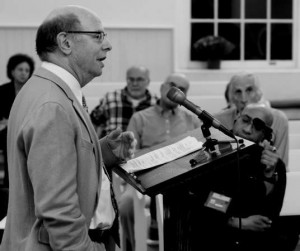
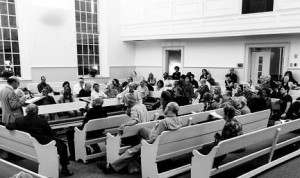
From Guantanamo to Wikileaks: Taking on the State In a Post 9/11 World.
Our own Michael Ratner, President Emeritus, Center for Constitutional Rights (CCR), past president, National Lawyers Guild; Chair, European Center for Constitutional and Human Rights delivered a talk last week titled ‘From Guantanamo to Wikileaks: Taking on the State In a Post 9/11 World.’ Michael was honored with a PathMaker to Peace Award by the Brooklyn For Peace Organization for his consistent work in litigation against government spying and surveillance of activists including the targeting of Muslims particularly after 9/11.
Law and Disorder Co-host Attorney Michael Ratner, President Emeritus of the Center for Constitutional Rights (CCR), a non-profit human rights litigation organization based in New York City and president of the European Center for Constitutional and Human Rights (ECCHR) based in Berlin. Ratner and CCR are currently the attorneys in the United States for publishers Julian Assange and Wikileaks. He was co-counsel in representing the Guantanamo Bay detainees in the United States Supreme Court, where, in June 2004, the court decided his clients have the right to test the legality of their detentions in court. Ratner is also a past president of the National Lawyers Guild and the author of numerous books and articles, including the books Who Killed Che? How the CIA Got Away With Murder, The Trial of Donald Rumsfeld: A Prosecution by Book, Against War with Iraq and Guantanamo: What the World Should Know, as well as a textbook on international human rights.
———————————————————————————-

Please help support Law and Disorder, the show is now a sponsored project of Fractured Atlas, a non-profit arts service organization. Contributions for the charitable purposes of Law and Disorder must be made payable to Fractured Atlas only and are tax-deductible to the extent permitted by law.
CIA Sponsored Terror, Civil Liberties, Criminalizing Dissent, Gaza, Guantanamo, Habeas Corpus, Human Rights, Military Tribunal, NSA Spying, Political Prisoner, Prosecution of the Bush Administration, Supreme Court, Surveillance, Targeting Muslims, Torture, War Resister
Podcast: Play in new window | Download
Updates:
- Michael Ratner: Moazzam Begg Freed After Terrorism Charges Dropped
- Michael Ratner: 149 Inmates In Guantanamo Bay Prison – 79 Approved For Transfer
——-
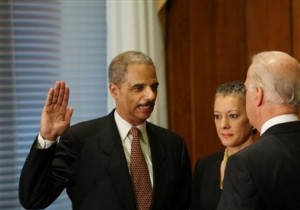

U.S. Attorney General Eric Holder Evaluation
Michael Ratner and Heidi Boghosian draw a balance sheet on the record of U.S. Attorney General Eric Holder.
- Holder approved drone killing of American citizen al-Awlaki without due process.
- Holder failed to prosecute any of the Bush Administration officials who were openly admitted torturers.
- Holder abrogated the responsibility in holding corporate criminals accountable. Wall Street.
- Holder settled with HSBC for 2 billion, the bank was caught laundering money for drug cartels yet no prosecution.
- With-Holder prosecuted whistleblowers, Chelsea Manning, Julian Assange, Edward Snowden, James Risen, Jeremy Hammond, Fox News Reporter,
Law and Disorder Co-host Attorney Heidi Boghosian, executive director of the A.J. Muste Memorial Institute, a nonprofit charitable foundation providing support to the nonviolent movement for social change. Before that she was executive director of the National Lawyers Guild. She is author of the book “Spying on Democracy: Government Surveillance, Corporate Power, and Public Resistance” (City Lights, 2013) as well as several reports on policing and the First Amendment.
Law and Disorder Co-host Attorney Michael Ratner, President Emeritus of the Center for Constitutional Rights (CCR), a non-profit human rights litigation organization based in New York City and president of the European Center for Constitutional and Human Rights (ECCHR) based in Berlin. Ratner and CCR are currently the attorneys in the United States for publishers Julian Assange and Wikileaks. He was co-counsel in representing the Guantanamo Bay detainees in the United States Supreme Court, where, in June 2004, the court decided his clients have the right to test the legality of their detentions in court. Ratner is also a past president of the National Lawyers Guild and the author of numerous books and articles, including the books Who Killed Che? How the CIA Got Away With Murder, The Trial of Donald Rumsfeld: A Prosecution by Book, Against War with Iraq and Guantanamo: What the World Should Know, as well as a textbook on international human rights.
——-
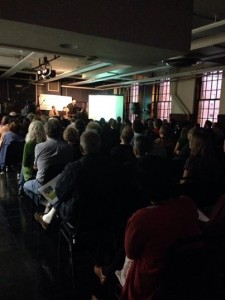

Academic Freedom & Political Dissent: A Conversation with Katherine Franke and the Community
We continue to report on Professor Steven Salaita’s case and the concerns regarding established principles of academic freedom. We hear a presentation by Katherine Franke, Professor of Law at Columbia University. Listeners may recall that Professor Salaita was unhired from the American Indian Studies program at the University of Illinois at Urbana-Champaign because of his statements on social media criticizing Israel’s conduct of military operations in Gaza. We reported last month on Law and Disorder that scholars from law schools around the country came out with a letter condemning the decision of the University of Illinois to unhire Professor Salaita. Katherine Franke discussed Salaita’s case at the University of Illinois at Urbana-Champaign late last month.
Speaker – Katherine Franke, Isidor and Seville Sulzbacher Professor of Law; Director, Center for Gender and Sexuality Law at Columbia University. She was awarded a 2011 Guggenheim Fellowship, and is among the nation’s leading scholars in the area of feminism, sexuality and race. In addition to her scholarly writing on sexual harassment, gender equality, sexual rights, and racial history, she writes regularly for a more popular audience in the Gender and Sexuality Law Blog. Franke is also on the Executive Committee for Columbia’s Institute for Research on Women and Gender, and the Center for Palestine Studies and teaches at a medium security women’s prison in Manhattan. Her legal career began as a civil rights lawyer, first specializing in HIV discrimination cases and then race and sex cases more generally. In the last 25 years she has authored briefs in cases addressing HIV discrimination, forced sterilization, same-sex sexual harassment, gender stereotyping, and transgender discrimination in the Supreme Court and other lower courts.
—————————————————————-

Please help support Law and Disorder, the show is now a sponsored project of Fractured Atlas, a non-profit arts service organization. Contributions for the charitable purposes of Law and Disorder must be made payable to Fractured Atlas only and are tax-deductible to the extent permitted by law.
Afghanistan War, CIA Sponsored Terror, Civil Liberties, Criminalizing Dissent, FBI Intrusion, Gaza, Guantanamo, Habeas Corpus, Human Rights, Military Tribunal, NSA Spying, Political Prisoner, Surveillance, Targeting Muslims, Torture, War Resister
Podcast: Play in new window | Download
Updates:
- Attorney Michael Smith Remembers 69th Anniversary of U.S. Dropping A-Bombs On Japan
- Atomic Diplomacy: Hiroshima and Potsdam: The Use of the Atomic Bomb and the American Confrontation with Soviet Power
—–

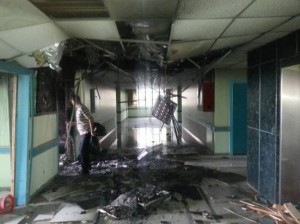
The Logic of Israeli Violence
Ongoing reports of Israel engaging in senseless cruel violence against Palestinian people in Gaza throughout Operation Protective Edge is not a random bombing campaign but a strategic war experiment in colonial management as Greg Shupak explains in his recent article The Logic of Israeli Violence. Shupak points out the attacks on civilians fleeing for shelter, the bombing of the medical infrastructure, fishing boats and wheat mills, killing Arab speaking journalists are in the larger plan of ethnicide and to render the Palestinian people dependent. His article reminds readers that there is a measured plan of attack to systematically erase the historic memory of the Palestinian society.
Greg Shupak:
- There’s good reason to believe according to some reporting by 97 Magazine and Max Blumenthal that the Israeli security forces knew quite perfectly well the teens were almost certainly killed as soon as they were abducted and yet they carried on this charade of pretending that they could be rescued in some way.
- Rocket fire from Hamas didn’t start until after Israel carried out strikes within Gaza, and carrying out various forms of killing Palestinian civilians and or people they described as militants.
- The rockets were a response to Israeli violence.
- Israeli propaganda has insinuated that these tunnels have in fact been used to kill Israeli civilians or that they may well be, but that simply has not happened.
- If the aim was to destroy tunnels, Egypt which is being ruled by a brutal regime, in its own right, was able to get rid of these tunnels without killing huge numbers of civilians.
- Israel’s aim vis a vis Gaza is to isolate Palestinians there from the outside world render them dependent on external benevolence and at the same time absolve Israel of responsibility toward them.
- The thesis I put forth about the current violence of Operation Protective Edge, is that one way Israel is attempting to achieve that goal, that goal of Jewish supremacy in historic Palestine with as much land as possible and as few Palestinians as possible is to aim to obliterate Palestinians as a people with the capacity to live independently in their homeland.
- The pattern of Israeli violence . . . is not only to kill and maim Palestinians but to impede their capacity to live autonomously in historic Palestine.
- It’s a settler colonial project.
- This is part of a longer term pattern. If you look at the work of Dr. Sarah Roy of Harvard she has documented extensively what she calls the deliberate de-development of the Gaza Strip economy. She has warned that Gazans are at risk for mass starvation.
- Five hospitals have been shut down. 24 health facilities have been damaged.
- We also that there’s been direct strikes on hospitals from Israeli fire.
- The ability of Palestinians to care for themselves has very much been undermined.
- Two thirds of Gaza’s wheat mills are inoperative, 3000 of its herders are in need of animal feed. We’ve seen fishermen attacked, we’ve seen attacks on agricultural sites, these are all part of those processes that Sarah Roy has talked about in the longer term.
- If religion is way for a cultural group to understand its identity then attacking the cultural institutions of that religion are ispo facto an attack on the people to have an identity.
- When you attack an educational institution you undermine the ability of a people to educate their young, to train them for future work, to train them to think critically, to develop artists, and inventors and so on.
- This to me is a very significant way for stifling a cultural groups independent existence.
- At its simplest, Israel can be seen as a giant military base for the United States.
Guest – Greg Shupak, a writer, activist and PhD candidate at the University of Guelph’s School of English and Theatre Studies. He teaches Media Studies at the University of Guelph, Ontario, Canada.
——–
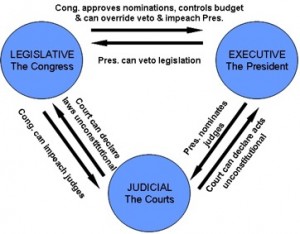
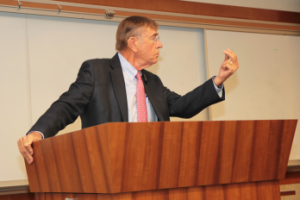
The National Security State: The End of Separation of Powers
Retired Professor of Law from Duke University Michael Tigar joins hosts to talk about his recent article The National Security State: The End of Separation of Powers published in the latest Monthly Review Magazine. Michael has explained how the Executive branch of government has come to dominate both the Judicial and Legislative branches of the United States government. Attorney Michael Tigar has been working on social issues for many years, his books include Law and The Rise of Capitalism, Fighting Injustice, and Thinking About Terrorism: The Threat To Civil Liberties In Times of National Emergency.
Attorney Michael Tigar:
- The basic principle of constitutional government that is established in our Constitution is that the actions of the legislative and executive branches, particularly the executive branch, are always reviewable by independently appointed judges and that the legality of whatever the executive branch does harms any protected interest, citizen or otherwise ought to be reviewable in the courts of the United States.
- The main thing about this is the harm to the judicial branch is in a real sense a self inflicted wound.
- That is to say judges confronted with assertions of executive power have proven inadequate to the task of restraining exercises of executive power
- We recall the massive illegality of the Japanese relocation at the beginning of the Second World War.
- It is now been shown that the premise upon which that relocation took place confining Japanese-Americans in concentration camps was false.
- At the time the Constitution was being debated Patrick Henry opposed the adoption of the Constitution on the ground that the ideal that independent judiciary could act as an effective check upon the exercise of executive power particularly military power was bound to be dis-proven in history.
- Law is legal ideology. That is to say its erected around social relations. In every time of recorded history there is a sense in which the formal guarantees that rules of law make about individual rights are simply lies the regime tells the people in order to sustain itself.
- That was the burden of book I wrote called Law and The Rise of Capitalism.
- The ideal that you rally people to the cause of social change by promising them liberty is also not new.
- The Cherokee people of Georgia read the Constitution and they said Aha, the Constitution guarantees that any group or individual can exercise certain social rights.
- So they drafted a Constitution for their nation and set up institutions then they brought suit against the state of Georgia to enforce these rights, that the letter of the American Constitution guaranteed that.
- What did Chief Justice Marshall say? What a minute, these are inferior and subject people. When the Constitution gives the right to all people, persons, citizens whatever, to bring lawsuits under Article 3 and to bring them to us, it wasn’t talking about these people.
- Michael Ratner you and others, courageous lawyers who have been struggling to get reviewablility of unlawful executive action should not give up the fight.
- The kinds of effort you make deserve support and turn out in historic context to be important.
- Historically the role of lawyers has been to articulate people’s claims for justice.
- What Edward Snowden and Julian Assange have done is reveal to the world fundamental defects in the way that the American political society has been operating and yet rather than saying thank you in some form of another, the government is hell-bent on prosecuting them.
Guest – Michael Tigar, a research professor of law. He holds expertise in Constitutional Law; Supreme Court; French legal system; criminal law and procedure; human rights. He is fluent in French. Tigar represented Terry Nichols in the Oklahoma City bombing trial. One of the most renowned lawyers in the country today, he has argued seven cases before the U.S. Supreme Court and more than 100 appellate cases. Tigar has written extensively about litigation, aspects of trial practice, criminal law, the death penalty, and the role of the criminal defense lawyer. His books include Fighting Injustice (ABA, 2002); Federal Appeals: Jurisdiction and Practice; and Examining Witnesses. In addition, he has written several plays about famous trials. Throughout his career, Tigar has been active in pro bono cases, the American Bar Association, continuing legal education programs, and international human rights. During the apartheid period, he went to South Africa to train black lawyers. Prior to joining AU, Tigar served as a professor at the University of Texas Law School.
—————————————————————————————–

Please help support Law and Disorder, the show is now a sponsored project of Fractured Atlas, a non-profit arts service organization. Contributions for the charitable purposes of Law and Disorder must be made payable to Fractured Atlas only and are tax-deductible to the extent permitted by law.
Afghanistan War, CIA Sponsored Terror, Civil Liberties, Criminalizing Dissent, FBI Intrusion, Guantanamo, Habeas Corpus, Human Rights, Military Tribunal, NSA Spying, Political Prisoner, Prison Industry, Surveillance, Targeting Muslims, Torture, Truth to Power, War Resister
Podcast: Play in new window | Download
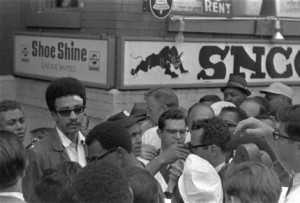
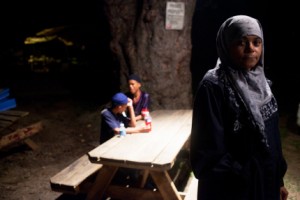
Campaign Demanding Proper Health Care For Incarcerated COINTELPRO Target Imam Jamil Al-Amin (H. Rap Brown)
A campaign was recently launched demanding immediate health care for political prisoner Imam Jamil Al-Amin, formerly known as H. Rap Brown. Once the chairperson of the Student Nonviolent Coordinating Committee and minister of justice for the Black Panther Party, Al-Amin was one of the original four targets of the FBI’s infamous COINTELPRO. Now 70 years old, he has been held in a federal prison at Florence, Colorado since 2006 where he is serving a life sentence for what many claim was the wrongful conviction in 2002 for shooting two deputy sheriffs. At the time, four leading Muslim organizations – CAIR, the AMC, ISNA and the Muslim American Society – issued a joint statement: “The charges against Imam Jamil are especially troubling because they are inconsistent with what is known of his moral character and past behavior as a Muslim.”
Al-Amin has multiple health issues have rapidly accelerated, including dental problems, a swollen jaw, broken teeth and swollen legs, ankles and feet, and has lost 30 pounds in just a few weeks, likely the result of recently-diagnosed cancer. Recently, former U.S. Attorney General Ramsey Clark visited Al-Amin.
Attorney Karima Al-Almin:
- I met Jamil on July 1st 1967. I had graduated from college and started a job on that day. He walked into the job where I was to see someone who he was staying with.
- At that time he was under house arrest and he could only stay in the borough of Manhattan, the Bronx and then William Kunstler’s house up there in Westchester county.
- He invited me to go to lunch. The lunch was with Louis Farrakhan. So I met him on the same day, we joke about that but I married Jamil.
- In May of 1967 he was elected chairperson of SNCC Student Nonviolent Coordinating Committee.
- Based on the fact that he didn’t appear for trial in Maryland for inciting to riot charge which was later dismissed, he was put on the 10 most wanted list in May 1970.
- For 19 months he was being sought and not found but then he was found and capture in October 1971. He was attempting to clean up New York City’s drug problem.
- There was an H. Rap Brown Anti-Dope Campaign. As a result he was captured in what was labeled as an “armed robbery.” He did go to trial and William Kunstler and Howard Moore defended him.
- He was given a sentence of 5-15 years. He served 5 years in the New York State prison system and then he got out in 1976.
- After getting out in October 1976 he can come to Atlanta where I had moved.
- He spent years, establishing a Muslim community again cleaning up the neighborhood making it safe for families and children.
- In May of 1999 he was stopped which ended up being an illegal stop outside of Atlanta city limits. He was charged with driving a stolen car which he did not know about.
- In January of 2000 he was given a date to appear in court on those charges there was a storm and it was postponed. He didn’t know he was supposed to return and a warrant was issued in March 2000. That’s when the incident happened.
- A Fulton County deputy was killed and one was shot and then we had the trial in 2002. There were so many problems with the trial. There were so many constitutional violations during the trial. As a result he was found guilty in March 2002 and given a life sentence without the possibility of parole.
- Georgia in 2003 tried to get him transferred and held in a federal facility, but it didn’t come to happen until July 2007. They were moving him based on his popularity.
- Georgia (the state of) is paying a per diem to the Federal Bureau of Prisons for him to be housed.
- It goes back to what he thought was a dental problem about a year and a half ago. He developed abscesses. He was unable to get out of bed.
- A petition has already been sent to President Obama, Eric Holder and Charles Samuels.
- Call ADMAX – 719-784-9464.
- Create an email and fax flood. Email FLM/execassistant@bop.gov or use the form at http://www.bop.gov/inmates/concerns.jsp (location Florence ADMAX USP). Fax 719-784-5290. Jamil Al-Amin, #99974555
- He dared to step out when he was 23 years old to speak out about injustices and make a difference.
Guest – Attorney Karima Al-Amin is an attorney at law and the wife of political prisoner Imam Jamil Abdullah Al-Amin. In addition to her private practice, Mrs. Al-Amin continues to work with attorneys in appealing her husband’s conviction and in working on his civil lawsuits challenging First Amendment and religious violations. Mrs. Al-Amin is a member of several legal and community organizations, including the American Immigration Lawyers Association (AILA), the Clarkston Business Association, and the Georgia Association of Muslim Lawyers (GAML).
——
US Attorney General Ramsey Clark:
- I met first through FBI memos, a stack that reached floor to ceiling. He had a wonderful talent to irritate the FBI.
- The country needs that sort of skill. So I got a lot of memos before I even met him.
- He committed the supreme offense in the hierarchy of offenses of the FBI that is he embarrassed the bureau by making them look foolish cause they couldn’t catch him.
- The legal staff were cheering him on. He made our day with narrow escapes. After this Congress enacted this absurd statute in his honor that shows he was a productive citizen concerned for our welfare.
- He’s big strong tall guy and he has to duck under that door on the other side of that glass that you meet him through, he looked smaller.
- Usually his energy level is very high. His energy level is way down, he looked frail in spite of his large frame.
- Went back Sunday and his condition was the same, confirmed. He’s got a real health problem that needs to be addressed.
- I think ideally he’d go to the Mayo Clinic first, get the thorough work up and diagnosis and everything. If its going to be long range treatment get him over to North Carolina.
- The main thing is he needs the help of caring people from all over the country. We have to organize that to pressure the United States to do the only moral thing.
Guest – Ramsey Clark, former Attorney General of the United States, under President Lyndon B. Johnson. The first Attorney General at the Justice Department to call for the elimination of the death penalty and all electronic surveillance. After he left the Johnson administration, he became a vociferous critic of the Vietnam War and continued on a radical path, defending the underdog, defending the rights of people worldwide, from Palestinians to Iraqis, to anyone who found themselves at the repressive end of government action.
——-
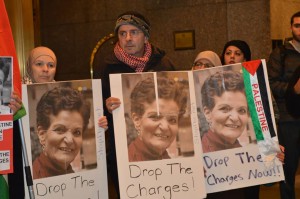
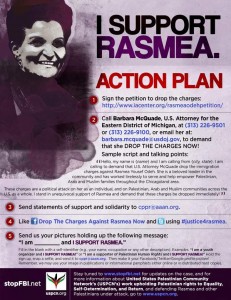
U.S. Government To Prosecute 67-year-old Palestinian-American Rasmea Odeh
In the fall of 2013, the Department of Homeland Security arrested Rasmea Odeh, a 67 year old Palestinian American community activitist and teacher in her Chicago home for failing to disclose a 1969 conviction in an Israeli military court. She was charged with unlawful procurement of naturalization. Odeh had allegedly failed to disclose her time in an Israeli prison 45 years ago. In 1969 Rasmea Odeh, her father and fiancee were brutally tortured in an Israel relating to a bombing at a Jerusalem supermarket. Israel extracted a confession from Odeh, and she spent 10 years in an Israeli prison where she was tortured and sexually assaulted.
Odeh is Associate Director of the Arab American Action Network and leader of that group’s Arab Women’s Committee. The events bring together disenfranchised women, mostly recent immigrants, from Arabic-speaking countries. Odeh is scheduled for trial at a Detroit Federal court in September. If convicted she could be imprisoned, have her citizenship revoked and be deported. Human rights campaigners in the United States are calling on the Obama administration to drop charges against Rasmea Odeh, a Palestinian-American community organizer in Chicago who is accused of lying on a citizenship application two decades ago.
Attorney Michael Deutsch:
- She was arrested Israel military and secret police in February of 1969. Her family, her father and two sisters were also arrested, taken out of the house in the middle of the night.
- She was then transported by herself to a prison in Ramallah. On the way she was brutally beaten, when she arrived at the prison she was beaten again to the point where her whole body turned black.
- She was then transferred to another prison which is called the Russian compound which is in the West Jerusalem.
- There she was horrifically beaten subject to electronic torture, alligator clips to her breasts and genitals.
- Prisoners and soldiers came into her room, she was raped repeatedly. She was raped with sticks. She was denied food, denied sleep, this went on for 45 days until she gave in and confessed.
- Her father was brought in a room with her and they said her father was going to rape her. Her father of course refused and they beat her father to the point of unconsciousness and they dragged him out.
- She was accused of being involved in two bombings one at a British counsel and one at an Israeli grocery store.
- When she was brought into an alleged court, which was a military court run by soldiers, she renounced her confession and said that she was innocent. That was ignored and she was convicted of these bombings and being a member of an illegal organization and given a life sentence.
- Ultimately in 1979, she was traded with 70 other Palestinian prisoners for the return of an Israeli soldier where she was taken to Syria, then Lebanon then to Jordan where she lived til 1994. She obtained a VISA to come to the United States.
- Basically for almost the following ten years she’s been working as a community activist in Chicago particularly with the Arab-American Action Network.
- In 2010 there were all these raids by the FBI toward anti-war activists and the executive director of the AAAN. He was subpoenaed to a grand jury after the FBI raided his home and took all his papers.
- They claim that he was providing material support for the PFLP and as a result the whole AAAN was put under investigation and the grand jury subpoenaed all the documents of the organization.
- As a result of this investigation into the AAAN, the US attorney in Chicago sent word to Washington that they wanted to get Rasmea’s files from Israel.
- In a year or two years they got the records or alleged to be her records of arrest, conviction and sentence by the Israeli military court.
- I don’t believe a conviction or arrest by the IDF and a conviction by an Israeli military tribunal is consistent with International Law, fundamental fairness or due process.
- One of the things were going to say is that the conviction and arrest can’t be given any kind of credit in a U.S. courtroom because its fundamentally unfair and shouldn’t be considered.
- The question is whether she answered those questions with an intent to falsely procure her naturalization.
- I would add the judge in this case has been a fervent supporter of Israel since the 50s.
- The Israeli tribunals are not only based on torture but illegal occupation. They invade a people’s land and set up these military courts.
- The question in my mind in Rasmea’s trial is how are they going to keep out the issue of torture? Which is want they’re going to want to do.
- To support Rasmea Odeh, contact the Arab-American Action Network
- CCR Statement
Guest – Attorney Michael Deutsch, after clerking for United States Court of Appeals Judge Otto Kerner, Mr. Deutsch went into private practice, joining People’s Law Office in 1970 where he has represented political activists and victims of police and government civil rights violations. His advocacy has taken him all around the world, including to hearings in the United Nations. He has tried many civil and criminal cases in federal and state courts, and has written and argued numerous appeals, including several in the United States Supreme Court.
——————————————————

Please help support Law and Disorder, the show is now a sponsored project of Fractured Atlas, a non-profit arts service organization. Contributions for the charitable purposes of Law and Disorder must be made payable to Fractured Atlas only and are tax-deductible to the extent permitted by law.
CIA Sponsored Terror, Civil Liberties, Criminalizing Dissent, Gaza, Guantanamo, Human Rights, Military Tribunal, Prison Industry, Surveillance, Targeting Muslims, Torture
Podcast: Play in new window | Download
Updates
——
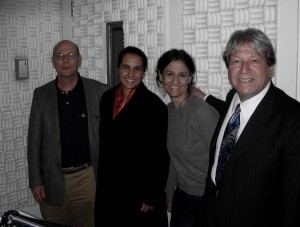
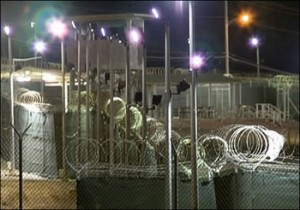
Michael Ratner Marks CCR Case Rasul v Bush: Courage To Stand Up At The Right Time
In early 2002, the Center for Constitutional Rights filed two habeas petitions, Rasul v. Bush and Habib v. Bush. This challenged the U.S. government’s practice of holding foreign nationals captured in connection with its war on Afghanistan and al-Qaeda in indefinite detention. This is without counsel and without the right to a trial or to know the charges against them. Michael Ratner then explains the timeline of how the Supreme Court, over the administration’s objections, agreed in November 2003 to hear the cases of the Guantanamo detainees, and also the case of al Odah v. Bush. This week’s anniversary marks the historic ruling on June 28th, 2004 that detainees have access to U.S. Courts to challenge their detention.
Attorney Michael Ratner:
- We won that in June 28, 2004. We won it in a 6-3 decision. The Center for Constitutional Rights was the only human rights organization on the case. The only one willing to take that case.
- Many of my colleagues, not me, thought that would be the end of Guantanamo (Bay Prison)
- There are still 149 people left in Guantanamo, over half of them have been cleared for release. The reason I want to mark this is because it talks about a struggle that in some ways was successful and in some ways not successful.
- It also talks about the courage of these lawyers that started these cases in the thick of the most anger in the country and . . . fears that we would lose our fund raising.
- We thought at that time, as I said some of our friends, said that we would close Guantanamo. But since that time there’s been incredible stubborn resistance by all 3 branches of government.
- Bush first, then Obama, despite promises has failed to live up to them, promises to close Guantanamo. The courts are therefore useless now in this.
- Congress is going retrograde at a speed unimaginable, trying to ban every transfer for the rest of our days from Guantanamo.
- Within 2 months of the 911 attacks, President Bush issued Military Order Number 1. It’s November 13, 2001 Military Order, I thought a coup de tat happened in the country. It said the president had the authority to pick anyone, anywhere in the world. Hold them indefinitely, incommunicado and abolish habeas corpus.
- We tried to get other human rights organizations to do it. No one else to their shame would come aboard with the Center for Constitutional Rights.
- The Center for Constitutional Rights could’ve gone under for this. Let me be clear. It was a much smaller institution. It didn’t have that much funding. There was a high risk that we were going to get cut off completely.
- January 11, 2002, they take the people, the first plane load to Guantanamo.
- We never expected the Supreme Court to take the case in 2003. When it finally did, it accepted the case. It was argued in April 2004. It was decided in our favor on June 28.
- We then put out a call for other lawyers to join us. Over a hundred lawyers joined us immediately. 600 within a year or two. We then created what I call a mass movement of lawyers to fight this.
- As a result of the 2004 ruling, our first attorney went down (to Guantanamo) Gita Gutierrez. The big thing that Gita’s visit represented is that we found out about torture at Guantanamo.
- You begin to understand when a government does incommunicado detention in an offshore facility that doesn’t have any court review, there’s a reason, and the reason is almost entirely torture.
- There’s been no prosecution. Obama has given them all a huge pass unfortunately. It’s really damaging because what it has done for torture is its saying, torture isn’t necessarily illegal, Obama claims it’s illegal but he didn’t prosecute anybody.
- So, next time we have another “scare” like this people will say it’s a political issue, we can torture, it works, etc.
Guest – Law and Disorder Co-host Attorney Michael Ratner, President Emeritus of the Center for Constitutional Rights (CCR), a non-profit human rights litigation organization based in New York City and president of the European Center for Constitutional and Human Rights (ECCHR) based in Berlin. Ratner and CCR are currently the attorneys in the United States for publishers Julian Assange and Wikileaks. He was co-counsel in representing the Guantanamo Bay detainees in the United States Supreme Court, where, in June 2004, the court decided his clients have the right to test the legality of their detentions in court. Ratner is also a past president of the National Lawyers Guild and the author of numerous books and articles, including the books Who Killed Che? How the CIA Got Away With Murder, The Trial of Donald Rumsfeld: A Prosecution by Book, Against War with Iraq and Guantanamo: What the World Should Know, as well as a textbook on international human rights.
——-
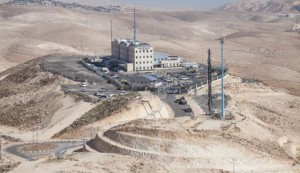

Israel Increases Rate of Palestinian Home and Structure Demolition
In the past few months, the Israeli government has stepped up its campaign of Palestinian home demolitions, specifically in the E1 area between Jerusalem and the Maale Adumim settlement. United Nations reports show 231 Palestinians had been displaced from their homes in early 2014. This is at a much quicker pace than 2013. Remember the demolishing of homes include livestock pens, fences, water reservoirs, schools, all vital to the livelihood and communal life of Palestinians. The Israeli Committee Against House Demolitions estimates since 1967, nearly 29 thousand Palestinian homes and livelihood structures were demolished in the Occupied Territories. However, at the same time the Israeli government has announced the construction of thousands of homes and buildings in the settlements of the West Bank and East Jerusalem.
Dr. Jeff Halper:
- This is an area called E1, that’s the planner’s jargon.
- The significance of E1 is that it closes the last north south corridor the Palestinians have from the north of west bank to the south since they can’t come through Jerusalem.
- Even the United States say if Israel build in E1 and closes that corridor that’s the end of the two state solution.
- This guy Irwin Moskowitz who is a big casino out in California gives millions to the settlements. He bought for the Israeli government a 10 million dollar state of the art police station. It’s the main police headquarters for all the West Bank that is in the E1.
- There’s a whole infrastructure of roads leading to Jerusalem, but Israel has still refrained from actually building. The plan is to build 3,500 housing units that absolutely, thickly closes that corridor to Palestinians.
- The 2 state solution is gone but this (building of E1 area) would be an absolute measure of the ending of the 2 state solution.
- We’re trying to mobilize international civil society against the occupation. The occupation is not going to end because the Israeli public rise up and end it.
- They’re living the good life, they’re profiting from the occupation especially from the point of view of testing and developing and selling weapons systems tested on Palestinians.
- And the governments of the world aren’t doing their job. Governments manage conflicts, they don’t resolve conflicts.
- So I’m here in the United States to try to speak to activist groups, church groups because the churches here have a very strong moral voice.
- We’re dependent on the Palestinians for leadership on where to go next. Not being Palestinians, we can’t tell them what the solution is.
- I think its urgent we formulate a one state solution. A one democratic bi-national state.
- I think there has to be a bi-national component in which both peoples have a sense of self expression and limited self determination within the common country.
- You have to create structures of sharing power.
- I think the Palestinians would have the ability to achieve a fair amount of parity with Israel within a short amount of time if we create this consociational type of state.
- Israel is beginning to be more and more of an albatross around the American’s neck.
- Operation My Brother’s Keeper had nothing to do with these kids who disappeared. It was a stand alone operation that used the disappearance as a trigger for being launched. The whole idea was to crack down on Hamas, to weaken the PA to keep it dependent on Israel.
- I think what’s happening is we’re in the midst of collapse.
- Jeff@ICAHD.org
Guest – Dr. Jeff Halper, co-founder and Director of ICAHD, the Israeli Committee Against House Demolitions. He was born in 1946 in Minnesota and emigrated to Israel in 1973. Since then he has been a tireless advocate for justice and civil rights for all Israelis and Palestinians. He spent ten years as a community worker in Jerusalem aiding low-income Mizrahi families. He co-founded ICAHD in 1997 to help resist Israel’s strategy of house demolitions in the Occupied Palestinian Territory. He is the author of three books, ‘Between Redemption and Revival: The Jewish Yishuv in Jerusalem in the Nineteenth Century’, ‘An Israeli in Palestine: Resisting Possession, Redeeming Israel’, and ‘Obstacles to Peace: A reframing of the Palestinian – Israeli Conflict’. In 2006 Dr. Halper was nominated for the Nobel Peace Prize, citing ICAHD’s work “to liberate both the Palestinian and the Israeli people from the yoke of structural violence” and “to build equality between their people by recognizing and celebrating their common humanity.”
—————————————————————————-

Please help support Law and Disorder, the show is now a sponsored project of Fractured Atlas, a non-profit arts service organization. Contributions for the charitable purposes of Law and Disorder must be made payable to Fractured Atlas only and are tax-deductible to the extent permitted by law.
![]()

























